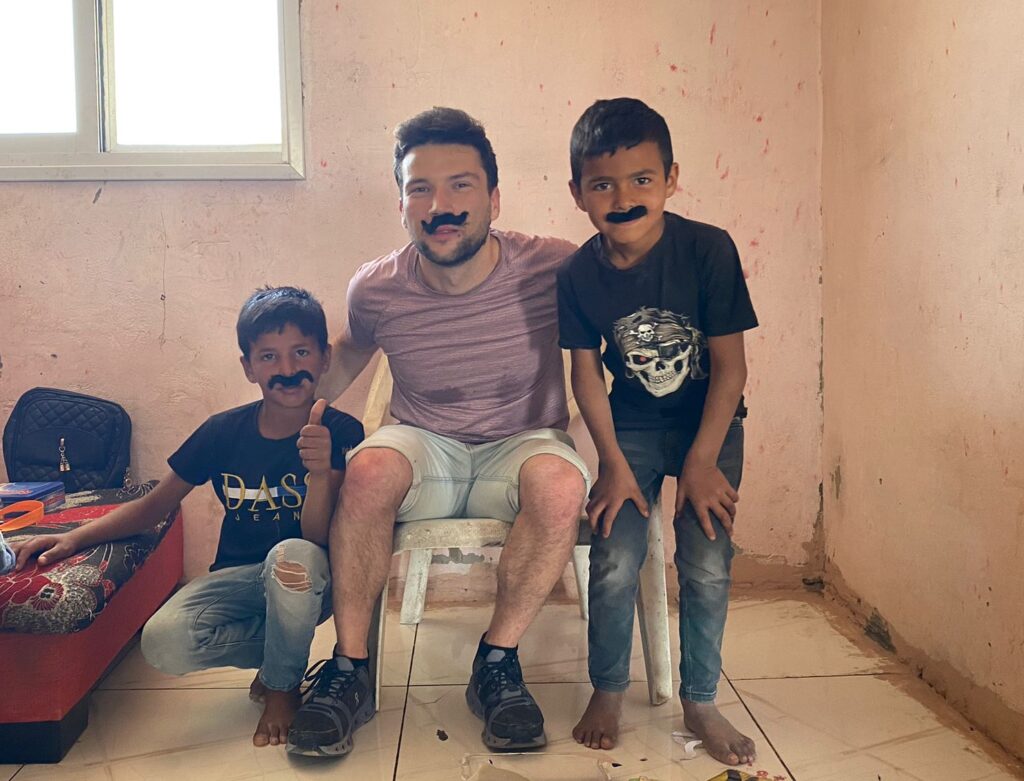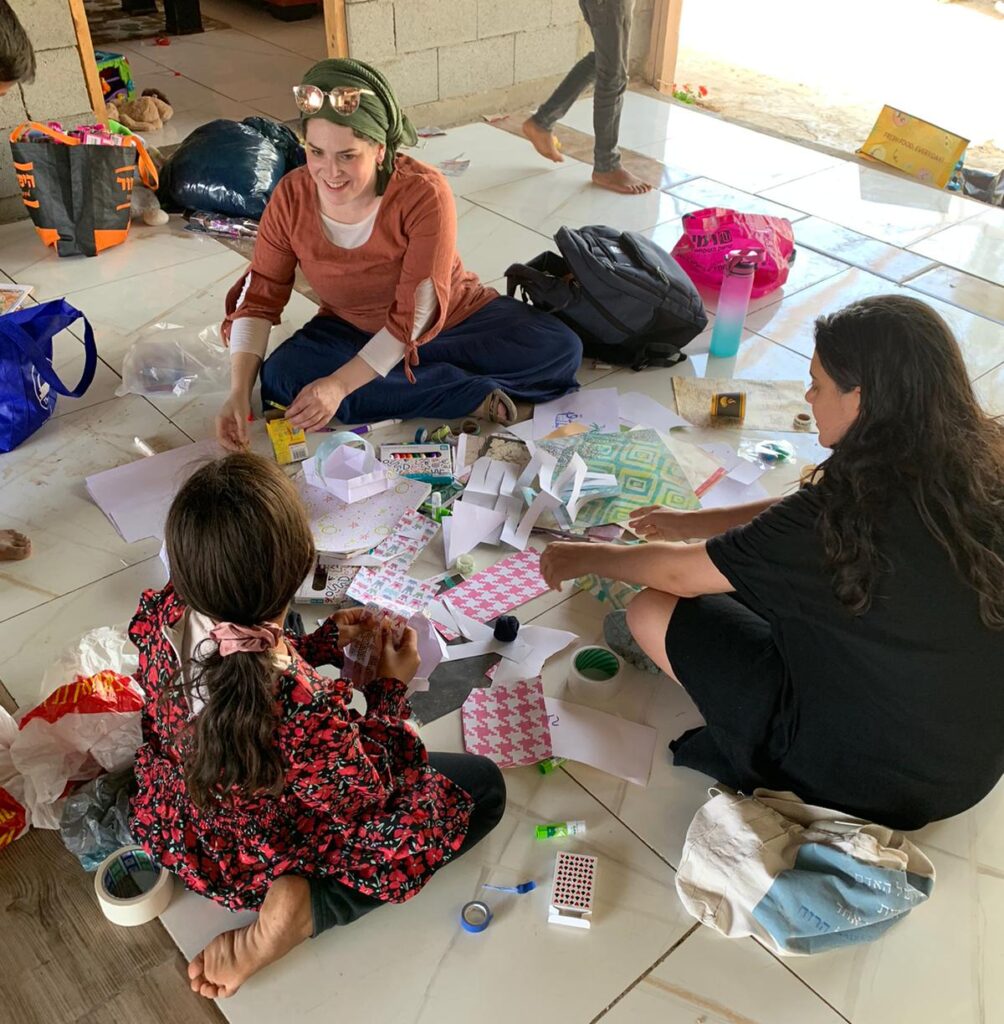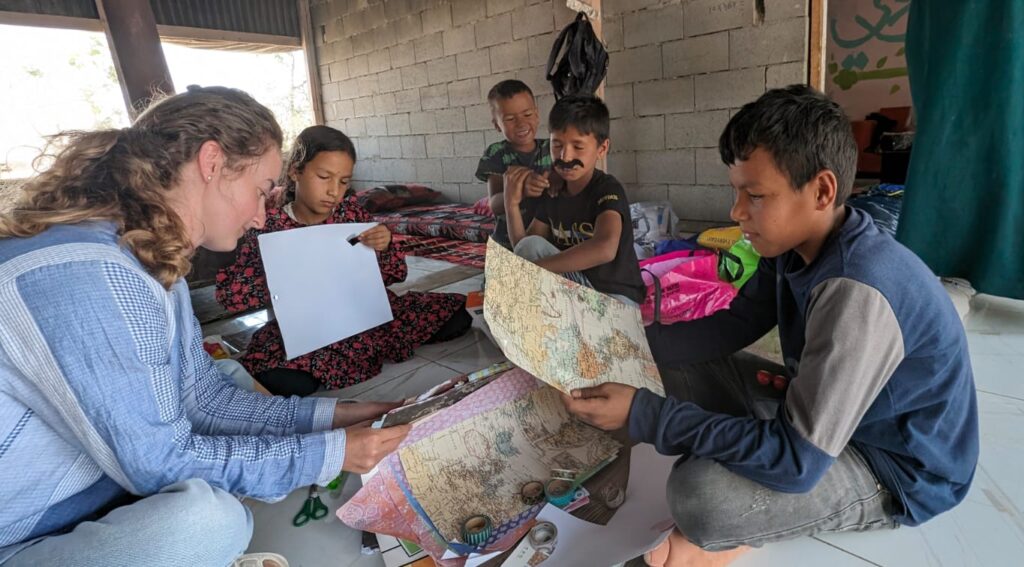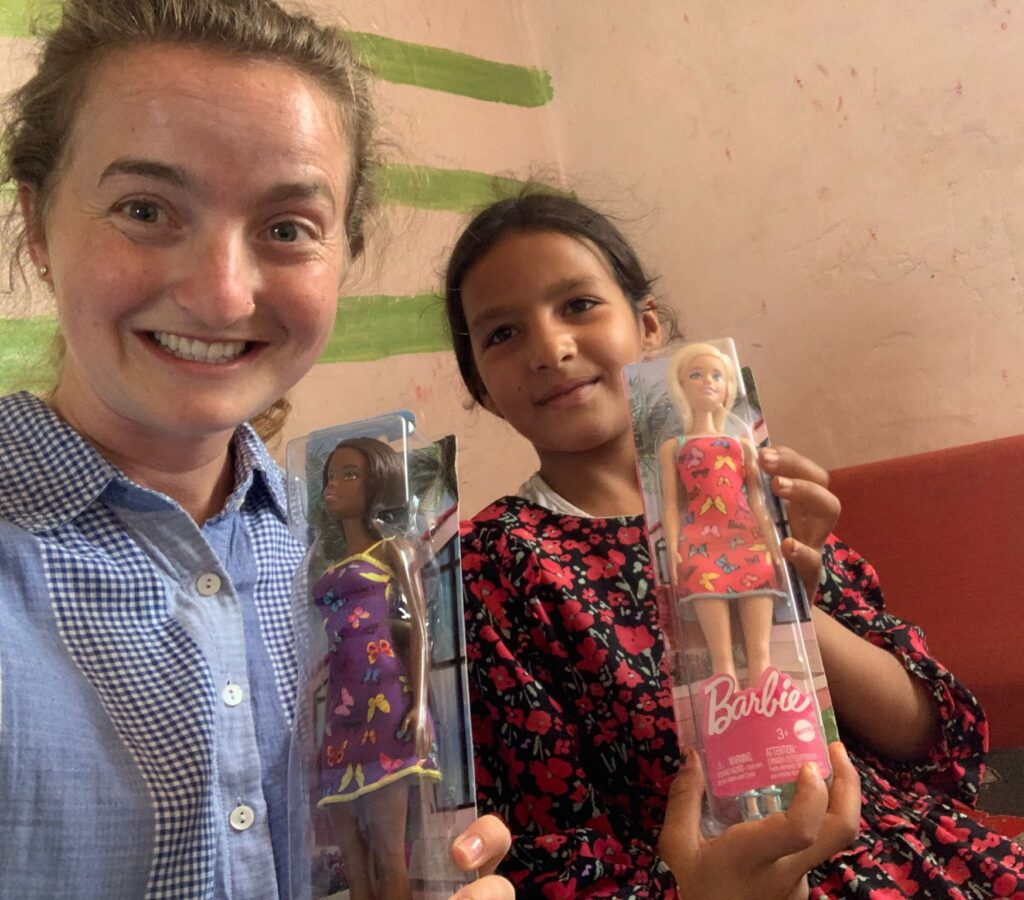In the quiet aftermath of a night marred by violence, the JLIC Tel Aviv community led by Rav Joe Wolfson and Corinne Shmuel found a path to healing and solidarity. This is the story of the initial connections formed between the Jewish community and the Bedouin Husseini family after the tragic missile attack on April 13-14th.
On that fateful night, an Iranian missile fragment tore through the home of the Husseini family in the Negev village of al-Fur’ah, injuring young Amina Husseini. She was the only Israeli injured in the attack, and her critical condition placed her in the ICU, where she remains. The Husseini family’s ordeal caught the attention and compassion of the Tel Aviv community, leading to gestures of support and an initial visit with the family.

The Husseini family’s home sits on a hilltop in the Negev, a patchwork of disconnected houses amidst a stark, beautiful desert landscape. When the rocket warning sirens blared, there was no shelter to seek. Their life was disrupted in an instant. Despite the severe challenges they faced, including the imminent threat of home demolition and the overwhelming responsibility of caring for twelve children, the Husseinis exhibited resilience and gratitude.
On Wednesday, May 23rd, two carloads of JLIC community members travelled to al-Fur’ah, bringing with them an array of toys, clothes, and essential supplies. The journey to the Husseini home felt like a voyage back in time, as community members reflected on the serene, nomadic lifestyle they encountered. The simplicity of the setting was striking—a stark contrast to the material abundance they carried with them. The children, who walked barefoot and played with animals, were mesmerized by the new toys.
“We came and brought with us a load of material abundance, which was our way of saying: we care about you. And bringing it to a space with very few frills made those toys that seem mundane at times to suddenly grow in value… The children cherished everything, from the balls and books to the scissors and masking tape we brought along.”

For many in the group, the experience was a profound reminder of shared humanity and the power of empathy. One community member observed the stark differences between their lives, noting the lack of basic comforts such as electricity and the visible hardship faced by the Husseini family. Yet, there was an undeniable warmth and hospitality extended by the Husseinis, who, despite their struggles, expressed gratitude and a desire to continue building connections.
The visit also offered an opportunity for cultural and linguistic exchange, healing old wounds and fostering new understandings. For some, speaking Arabic and engaging with the Husseini family was a step towards rebuilding the bridges of coexistence that had felt shattered by recent conflicts. One visitor reflected, “It is healing to work with Muslims and to speak Arabic again. Over the last few months, those bridges of coexistence have seemed to collapse all around me. Learning the language a few years back healed me, but this war toppled a lot that was built. Today we got to play, care, and hug wonderful Muslim people whose plight makes empathy so simple and obvious.”

The family’s matriarch echoed a powerful sentiment during the visit: “We are one; Jews and Muslims. I feel that around our story, the Jews have really been holding our hand. And I hope for a future where we can continue being together.”
The encounter was a poignant reminder of the importance of human connection in times of crisis. One community member reflected on the night of the attack, drawing parallels to historical experiences of collective fear and survival. They admitted a previous inability to fully empathize with Amina’s suffering, instead seeing her injury as a testament to their own miraculous survival. Meeting the Husseini family transformed this perspective, revealing the depth of their pain and resilience, and highlighting the responsibility to protect and support everyone in Israel.
“Perhaps you felt it too on that miraculous night, on the 6th of Nissan 5784, just a few days before Pesach,” the reflection began. “As the sun rose on a new day, it felt nearly impossible not to draw parallels between the experiences of just a few hours ago and our national experience in the hours before we left Mitzrayim.”

The reflection continued, acknowledging the discomfort in recognizing Amina’s suffering and the community’s initial detachment from it. However, the visit bridged that gap, creating a space for mutual support and understanding. The community member emphasized the shared responsibility in ensuring the safety and well-being of all communities in Israel, noting the actions of Arad’s mayor, Yair Maayan, who personally donated safe rooms to the Husseini family following his visit the day after the Iranian attack.
The visit concluded with a sense of renewed commitment for the future. The bonds formed between the Tel Aviv community and the Husseini family began to set the foundation for a brighter, more inclusive path forward. As they look ahead, the community remains dedicated to supporting the Husseinis and celebrating their resilience and strength.
“Today we finally did visit. And I am choosing to not look back—the future just feels too bright, so much so that I simply cannot look away.”
In these moments of connection, amidst hardship and healing, a shared future of coexistence and mutual support becomes a possibility.
Reach out to any of our Directors to learn more about JLIC and our programming.
Related Post
Honoring the Past, Embracing the Present: Yom HaShoah Commemoration with the Tel Aviv JLIC Community
Bringing Joy to Those in Need: JLIC Tel Aviv’s Matanot L’Evyonim 2024
Empowering Lives: JLIC Tel Aviv’s Work Match Program for Evacuees
From the Shoah to Aza, the Unyielding Spirit of a Sefer Torah
A Heartwarming Initiative Connecting Small Businesses and Military Families